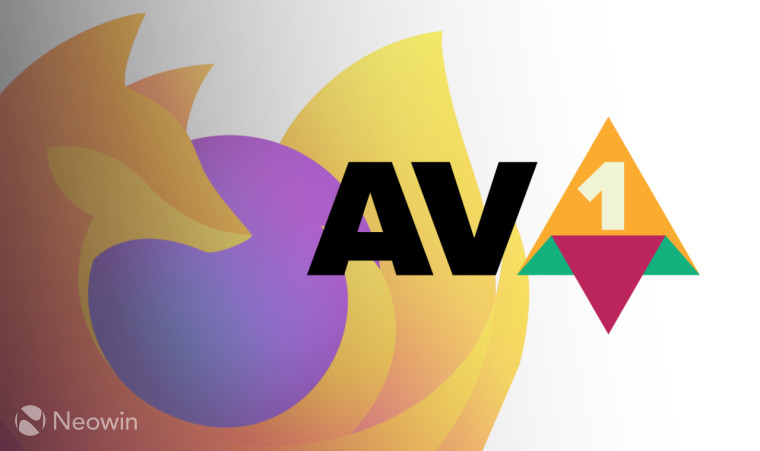
According to an update made to a post on Bugzilla, The Mozilla Foundation is finally ready to add hardware acceleration for the AV1 video format. Developers plan to implement improved AV1 support in the upcoming release of Firefox 100, scheduled to arrive on May 3, 2022.
Hardware acceleration for AV1 video brings several noticeable benefits to customers. The standard developed by Alliance for Open Media and initially released in March 2018 offers better video compression than H.264 (about 50%) and VP9 (about 20%). Shifting AV1 video processing from software to hardware improves efficiency and reduces energy consumption, resulting in better battery life on tablets and laptops.
Google and Microsoft announced hardware-accelerated AV1 video in Chrome and Edge in late 2020. Mozilla, on the other hand, did not rush to introduce improved AV1 support in Firefox. While it is easy to dunk on Firefox, there is a reason why developers took their time. Hardware-accelerated AV1 video is not something you can add to any computer with Windows 10, and it requires a PC with the most recent and powerful hardware. According to Microsoft, hardware-accelerated AV1 video works on Windows 10 and 11 PCs if the following requirements are met:
- CPU: 11th gen Intel Core with Intel Iris Xe Graphics or newer.
- GPU: NVIDIA RTX 30 Series or AMD Radeon RX 6000 Series with necessary drivers.
- OS: Windows 10 1909 or newer.
Several months ago, Mozilla said only ~2% of all PCs meet those requirements, so hardware acceleration for AV1 was not a priority for Mozilla Foundation. Now Firefox is ready to reach feature parity with Edge and Chrome in this regard.
Improved AV1 support is not the only area where Microsoft, Google, and Mozilla join forces. Recently, developers announced a new effort to enhance browsers interoperability to provide the same consistent experience for all users regardless of their platform or browser.